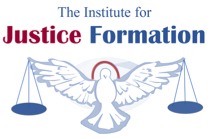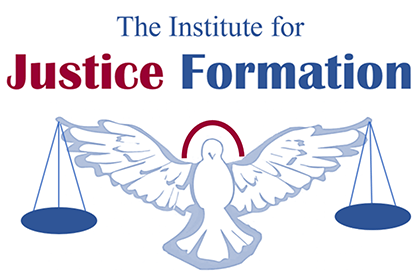KYLE DOBYNS
Please introduce yourself, share a little about your background and why you took this course.
My name is Kyle Dobyns, and I am a second-year part-time student at the John Leland Center for Theological Studies. My area of study focuses on Christian Leadership. I serve vocationally as a Youth Pastor. I took this course to educate myself about what the Bible says about justice. Unfortunately, we see the term “justice” misused in many ways both inside and outside of the church. Admittedly, prior to taking this course I could not give an accurate definition of Biblical Justice. I wanted to take a deep dive into God’s word to understand God’s meaning of justice more accurately, so that I can best exemplify as an individual and church leader what Biblical Justice is all about.
Before taking the course In Search of Biblical Justice, how would you have defined justice?
Before taking this course, I defined justice in this manner: Justice, to me, means fairness. When I thought of the word justice, I pictured the right outcome happening that is deserved, correct, and fair to the parties involved in each situation.
Throughout our course, my definition of justice has evolved and grown. I now view Biblical Justice as the mission to restore our world into the way that God intended for things to be. To bring about “shalom.”
Tell us about one or two lectures that most impacted your perception of justice during the semester. How was justice as recognized in Scripture defined? What biblical texts did the professor use as support?
A constant theme that has stuck with me during our time in class together is that justice was a huge part of the life of Jesus, and that justice is a foundation of Scripture. God loves justice. This is evident in both the Old and New Testaments. Early in the semester, our class was fortunate to dive into examples of justice according to the wisdom literature and prophets from the Old Testament. For me, I did not realize it, but justice is explicitly mentioned in detail in the wisdom literature and prophets in the Old Testament. We see examples of justice in the books of Psalms, Job, Jeremiah, Micah, and Isaiah. God orchestrates a message through the wisdom literature and prophets that God’s Kingdom is for all people, that the poor and defenseless are to be defended, and that powers must be confronted and checked when injustices occur. The wisdom literature and prophets give us a taste and a reminder of what truly matters most to God. As Christians we must focus on what matters most to God through how we live, and big a part of that is doing justice.
How have these points and the course in general changed or advanced what you think about or how you define justice?
God loves justice, and the Scriptures empower us as Christ-followers to do justice. God desires for all people to experience shalom. This course has challenged me to further dive into the teachings of the Old Testament where we see justice defined and emphasized.
As a Christ-follower, justice should matter to me because it matters to our Creator God. This course is relevant and vital because it tugs at the heart of God. As the term justice gets thrown around often in our culture, we Christians ought to be quick to point out that our God cares about justice, and we see evidence of this in Scripture.
How will these learnings and reflections impact your ministry going forward?
This course has caused me to deepen my understanding of Biblical Justice. This class has given me a clearer glimpse of what God desires from us as his followers. This course has challenged me to promote justice within my church family and community. This course has taught me to better understand why justice matters to God.

